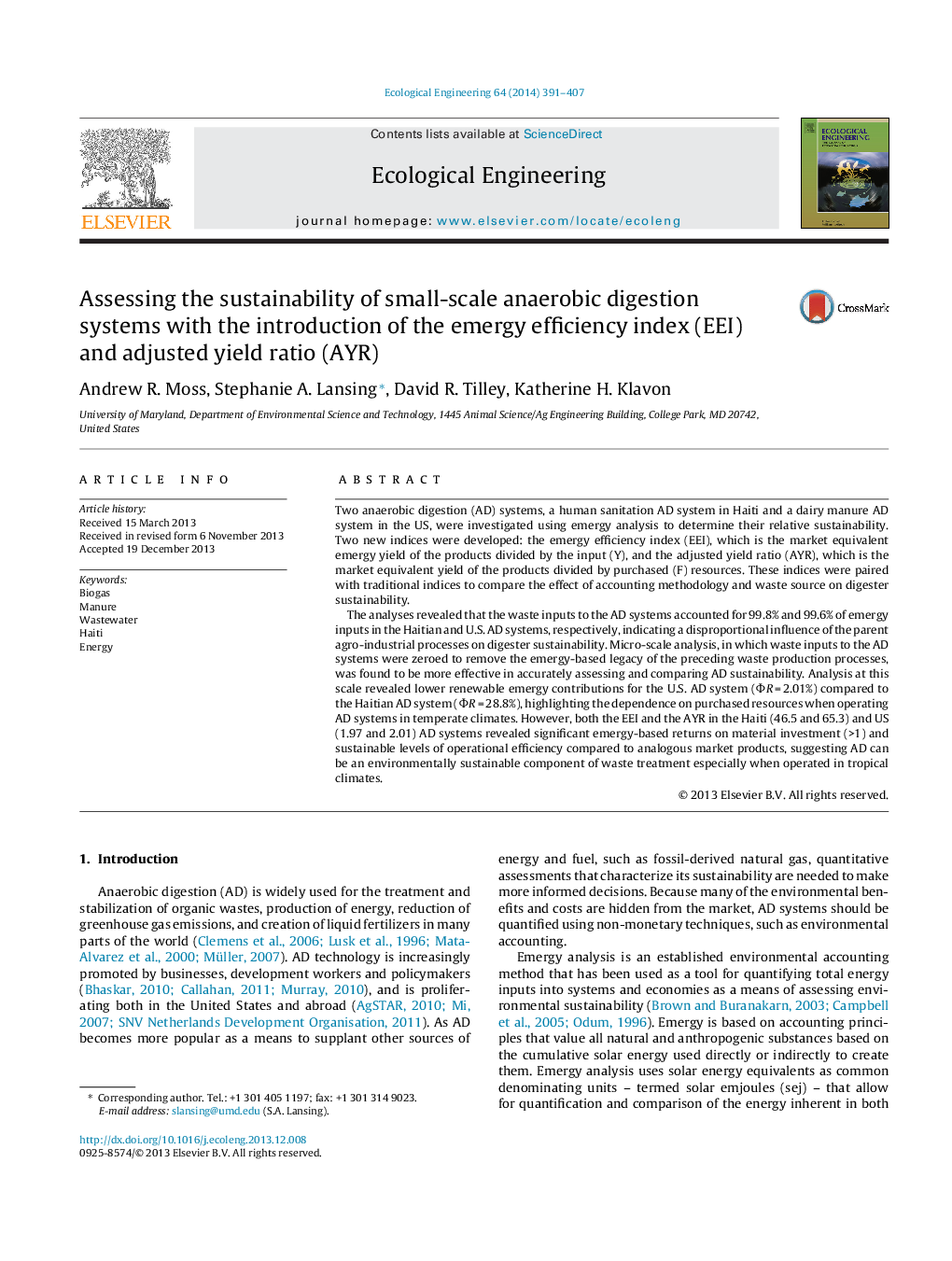| Article ID | Journal | Published Year | Pages | File Type |
|---|---|---|---|---|
| 4389603 | Ecological Engineering | 2014 | 17 Pages |
•Emergy analyses of digesters for human waste in Haiti and dairy manure in the US.•New emergy indices (EEI and AYR) were created for comparisons of analogous products.•Food and waste emergy analyses were conducted to determine waste emergy values.•Inputs from wastes accounted for more than 99% of the emergy in digesters.•When emergy waste values were zeroed, apparent sustainability improved.
Two anaerobic digestion (AD) systems, a human sanitation AD system in Haiti and a dairy manure AD system in the US, were investigated using emergy analysis to determine their relative sustainability. Two new indices were developed: the emergy efficiency index (EEI), which is the market equivalent emergy yield of the products divided by the input (Y), and the adjusted yield ratio (AYR), which is the market equivalent yield of the products divided by purchased (F) resources. These indices were paired with traditional indices to compare the effect of accounting methodology and waste source on digester sustainability.The analyses revealed that the waste inputs to the AD systems accounted for 99.8% and 99.6% of emergy inputs in the Haitian and U.S. AD systems, respectively, indicating a disproportional influence of the parent agro-industrial processes on digester sustainability. Micro-scale analysis, in which waste inputs to the AD systems were zeroed to remove the emergy-based legacy of the preceding waste production processes, was found to be more effective in accurately assessing and comparing AD sustainability. Analysis at this scale revealed lower renewable emergy contributions for the U.S. AD system (ΦR = 2.01%) compared to the Haitian AD system (ΦR = 28.8%), highlighting the dependence on purchased resources when operating AD systems in temperate climates. However, both the EEI and the AYR in the Haiti (46.5 and 65.3) and US (1.97 and 2.01) AD systems revealed significant emergy-based returns on material investment (>1) and sustainable levels of operational efficiency compared to analogous market products, suggesting AD can be an environmentally sustainable component of waste treatment especially when operated in tropical climates.
